10 Materials to Use for Kitchen Countertops
Here are the 10 best countertop materials to use in your Kitchen.
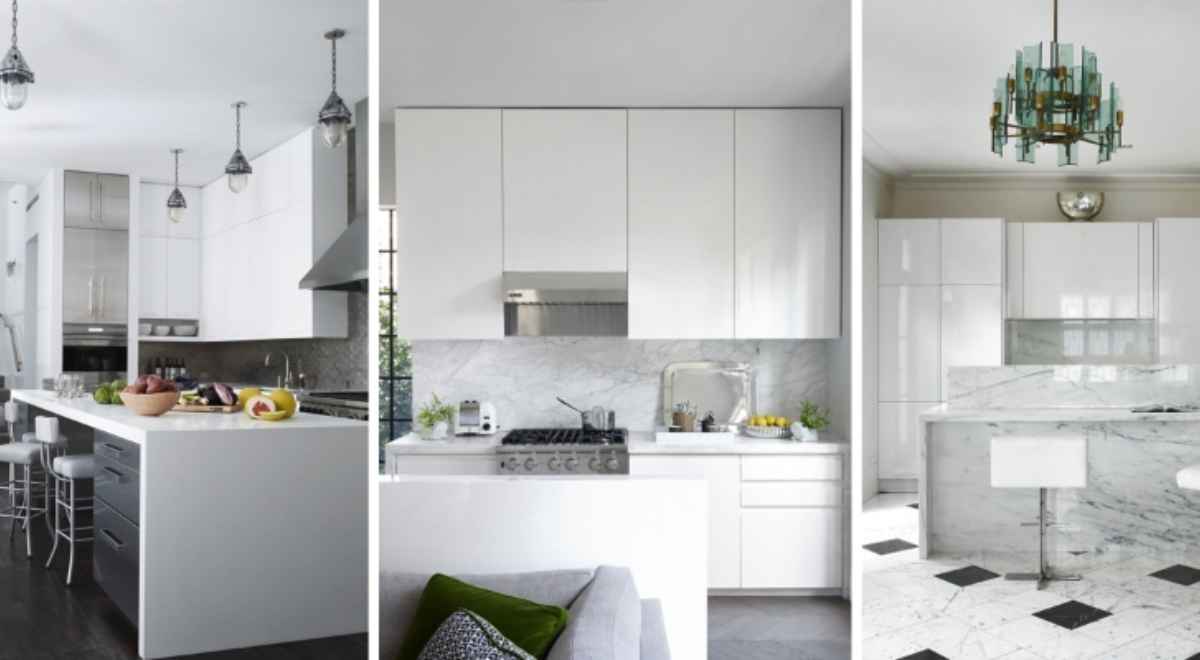
There are lots of options in the market for kitchen countertops. Hometriangle lists top picks and gives the pros and cons of the top 10 choices so that you can make an educated choice when you remodel your kitchen.
The Types
1. Granite Counters
Granite is the countertop material that is extensively used in our Kitchens. It defines elegance in a kitchen. As granite usage becomes more widespread, the price comes down. The beauty of the stone contributes to the beauty of even the most modest kitchen.Whether you are looking to go with a lighter, more traditional style or something a bit more modern, pros in kitchen countertops can provide you with an array of colors and styles that can fit any kitchen design. Installing granite countertops in your kitchen may seem like a daunting process but kitchen countertop professionals in Austin, Dallas, or others near you, are here to make sure the job is done right from helping you choose the best color and style for the space, to making sure all the necessary cuts are adequately performed.
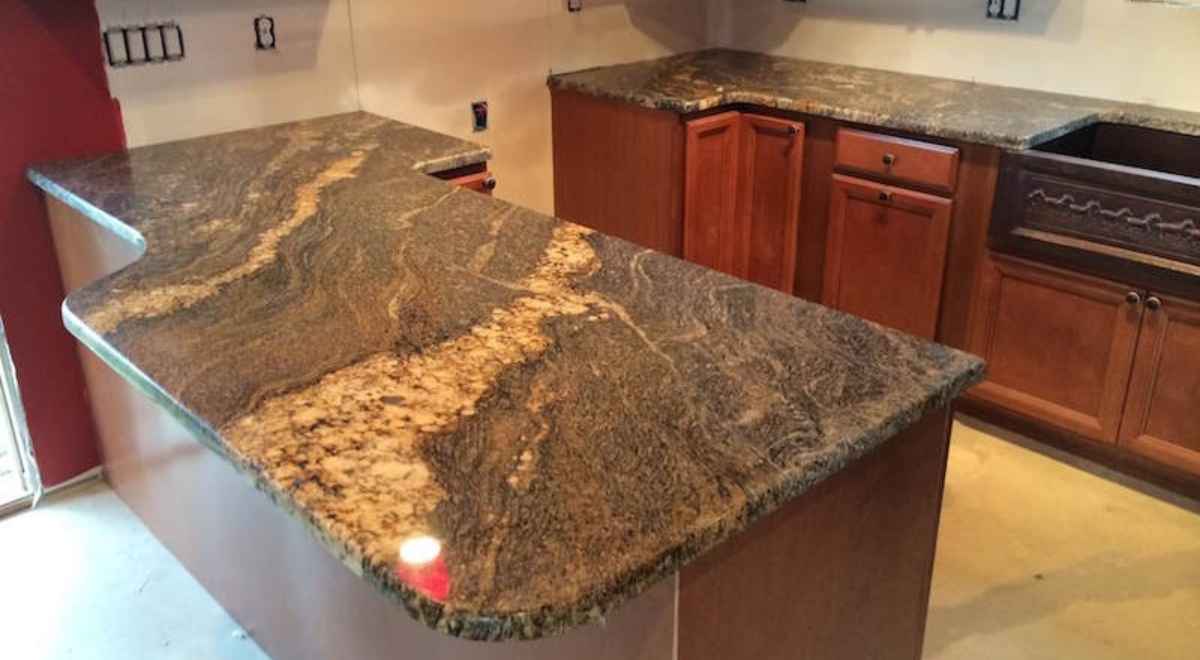
Pros
- Holds up to heat.
- Comes in a range of almost 1000+ colors.
- Looks permanent and substantial.
- Will last a lifetime.
- Has a high value to home buyers.
Cons :
- Expensive, but becoming more affordable.
- Requires some maintenance; some stones absorb stains if not sealed.
- Can crack if stressed or improperly installed.
2. Engineered Stone
Engineered stone is composed of 93% quartz particles. It is available in a larger range of colors than granite and has a nonporous surface that resists scratches. It's easy to maintain, without the annual sealing required by Natural Stone. Some brands on the market include DuPont Zodiaq®, LG Viatera®, Cambria Quartz, and Silestone®, Brilliant Worktops.
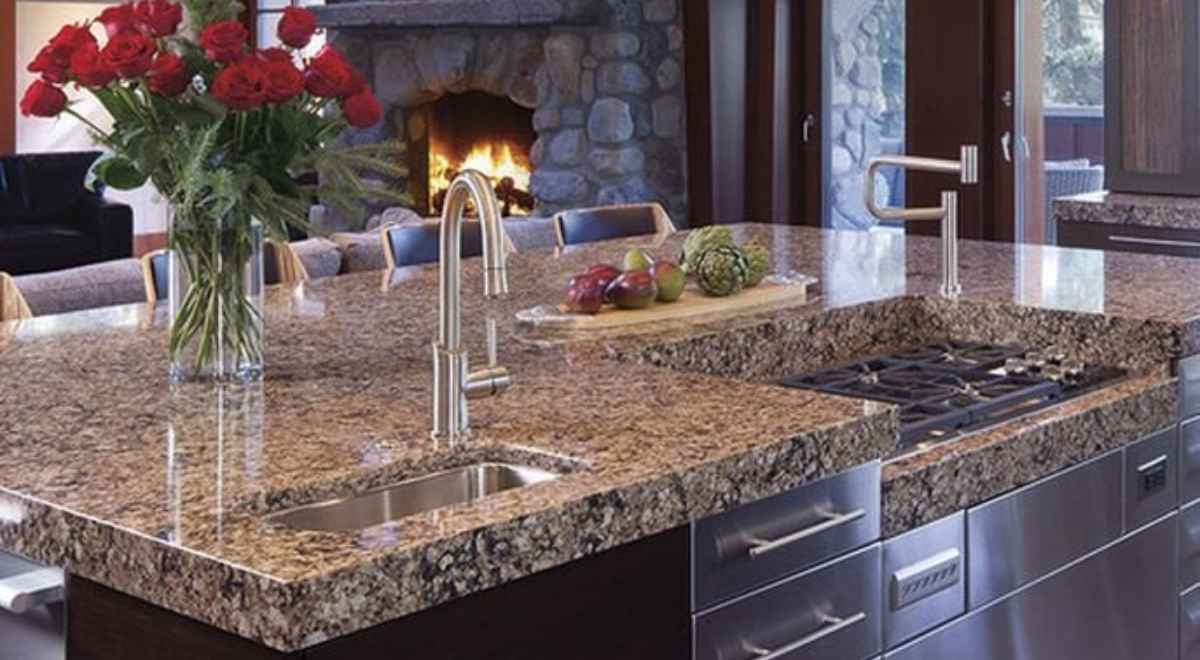
Pros :
- Resistant to stain and acid.
- Easy care.
Cons :
- Expensive.
3. Solid Surface
As the name Solid Surface Counters, they are solid, any scratches can be sanded out. The countertops are custom-made to your specifications by companies such as Avonite, Corian, and Swanstone.
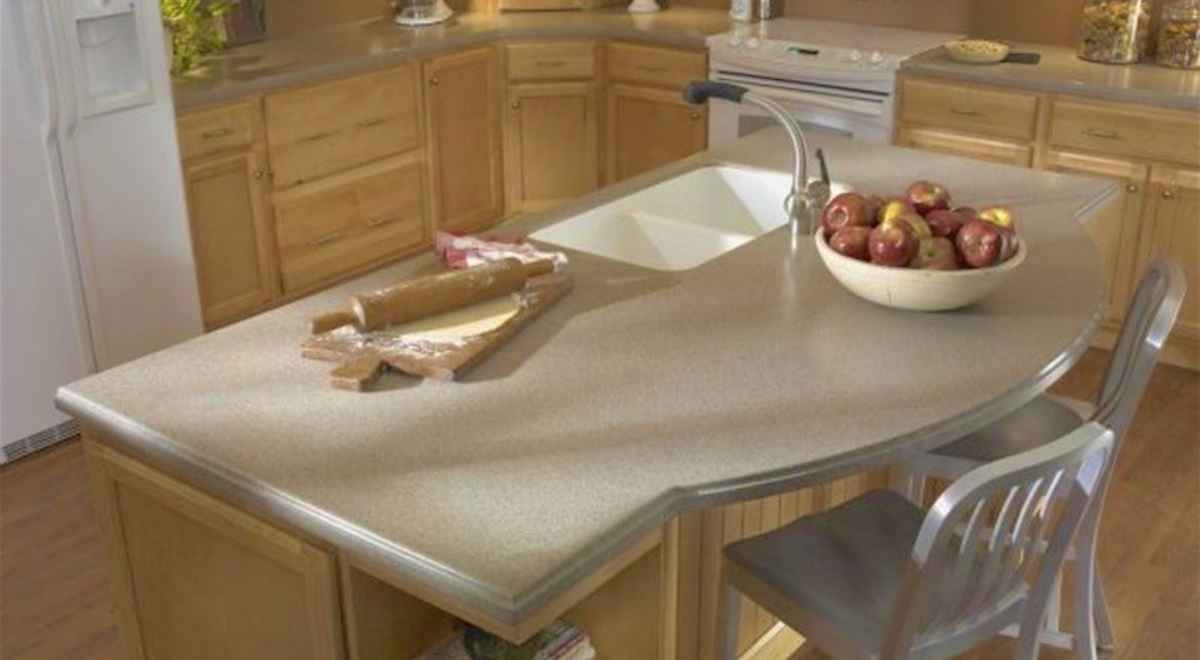
Pros :
- Comes in a rainbow of colors and patterns.
- Stain resistant.
Cons :
- Vulnerable to hot pans and stains which can damage the surface.
- Can be moderately expensive.
4. Ceramic Tile
Ceramic tile is durable and easy to clean. Add to that inexpensive and you've got a really good choice for countertops for the average home. Because it's installed a section at a time, it can be done by most resourceful homeowners.
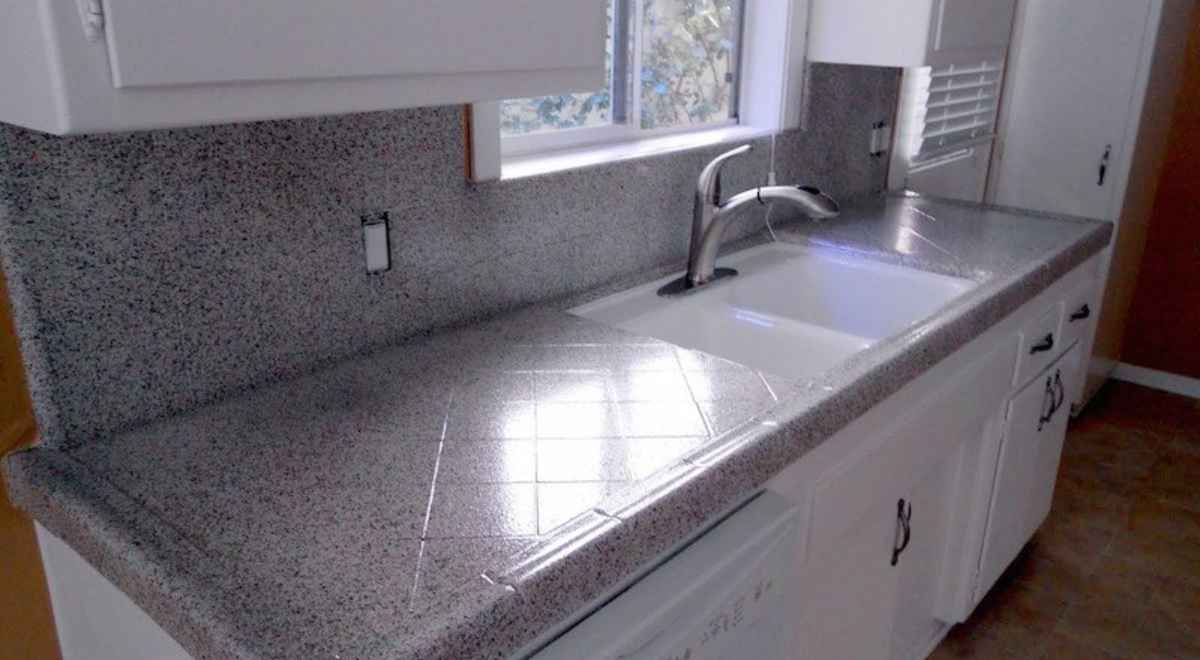
Pros :
- Takes hot pans.
- Easy to clean.
- Wide range of prices, colors, textures, and designs.
Cons :
- The counter surface is uneven.
- Tiles can easily chip or crack.
- Grout lines become stained.
- Custom-designed tiles are very expensive.
5. Laminates
Laminate Counters bare trademarks such as Formica, Nevamar, and Wilsonart. They're made of plastic-coated synthetics with a smooth surface that's easy to clean. The pieces are cut to size and finished on the ends.
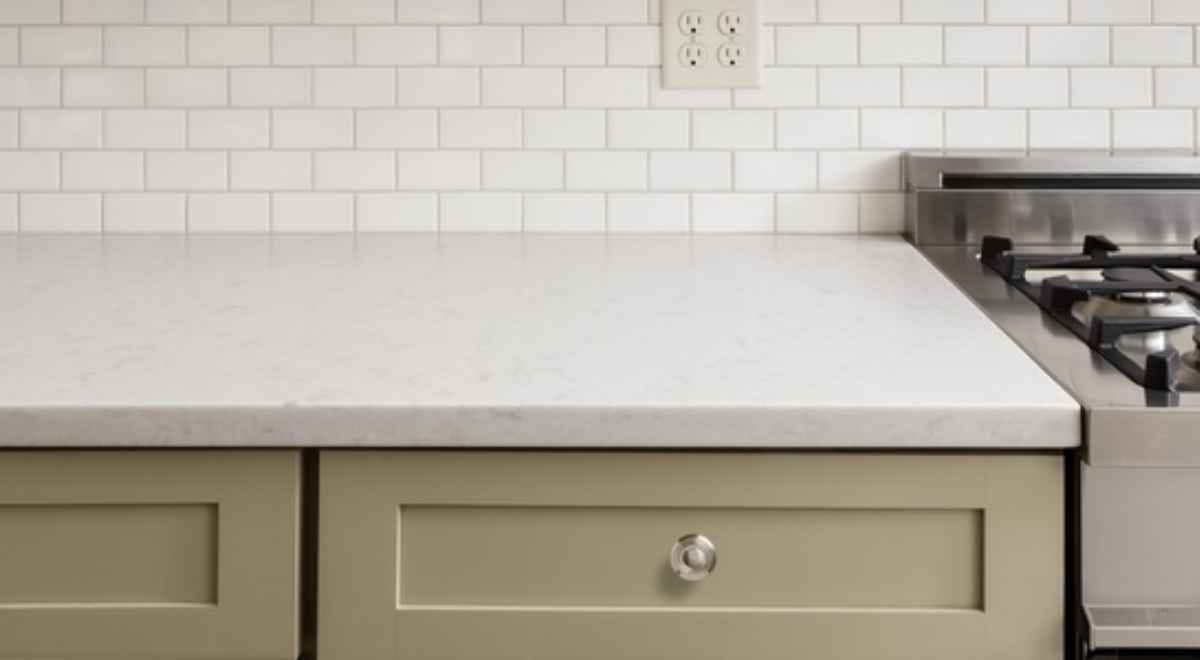
Pros :
- You can buy laminates in lots of colors.
- Easy to maintain.
- Durable.
- Inexpensive.?
Cons :
- Scratches and chips are almost impossible to repair.
- Seams show.
- End finishing and front edge choices can be pricey.
6. Wood or Butcher Block
Wood or Butcher Block offers a beautiful warm look and is available in a wide range of colors and finishes. Hardwoods such as maple and oak are most often used as countertop woods.
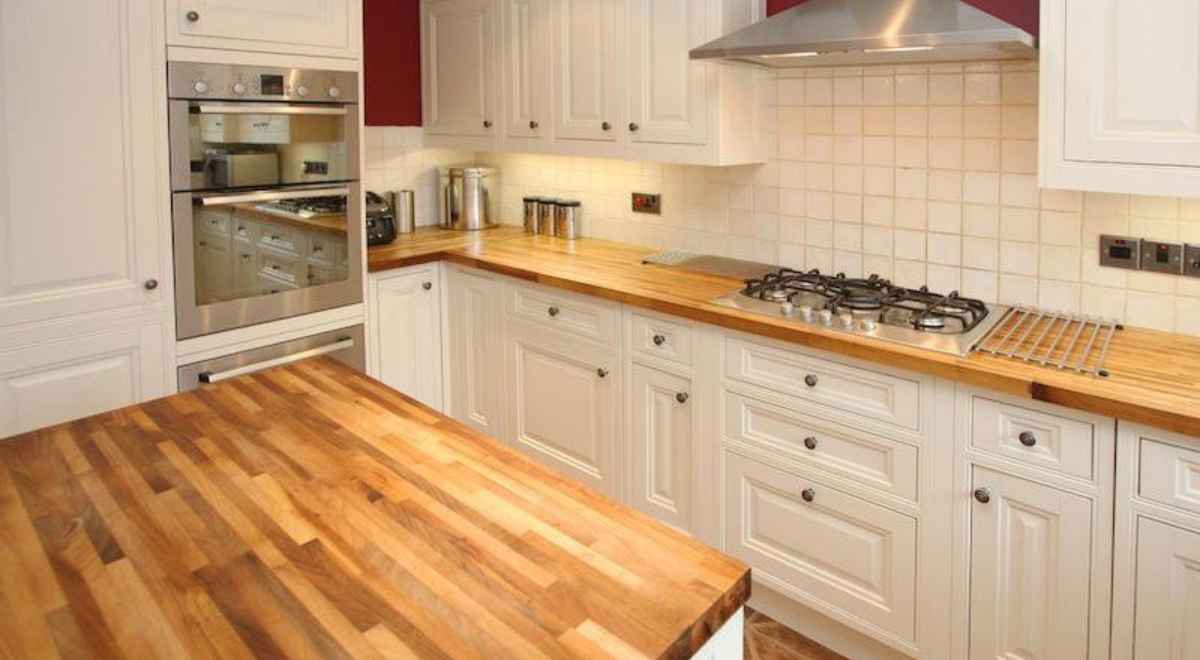
Pros :
- Easy to clean.
- Smooth.
- Can be sanded and resealed as needed.
Cons :
- Can be damaged by water and stains over time.
- Scratches must be oiled or sealed according to the manufacturer's instructions.
7. Stainless Steel Counters
For a really contemporary and industrial look for your kitchen, Stainless steel is a good choice. They are heat resistant and durable. Because they're constructed to your specifications, you can have a seamless countertop.
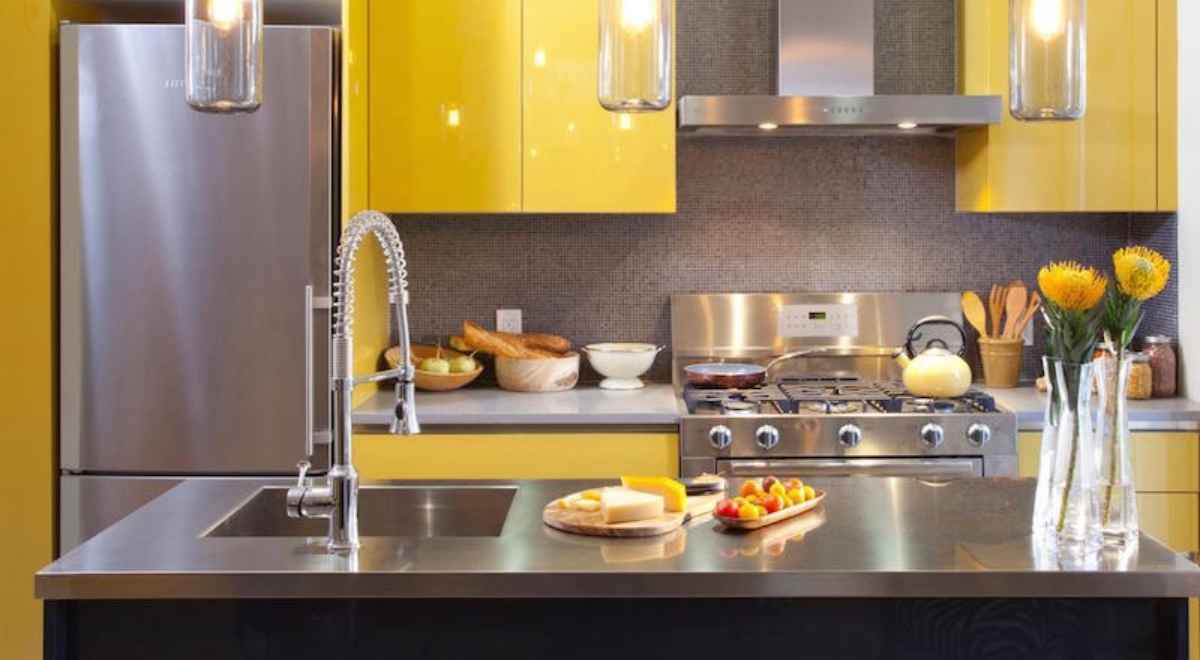
Pros :
- Takes hot pans.
- Easy to clean.
Cons :
- Expensive.
- Noisy.
- May dent.
- Fabrication is expensive.
- You can't cut on it.
8. Soapstone Counters
Soapstone is generally dark gray in color and has a smooth feel. It is often seen in historic homes but is also used in modern homes as both a countertop and sink material.
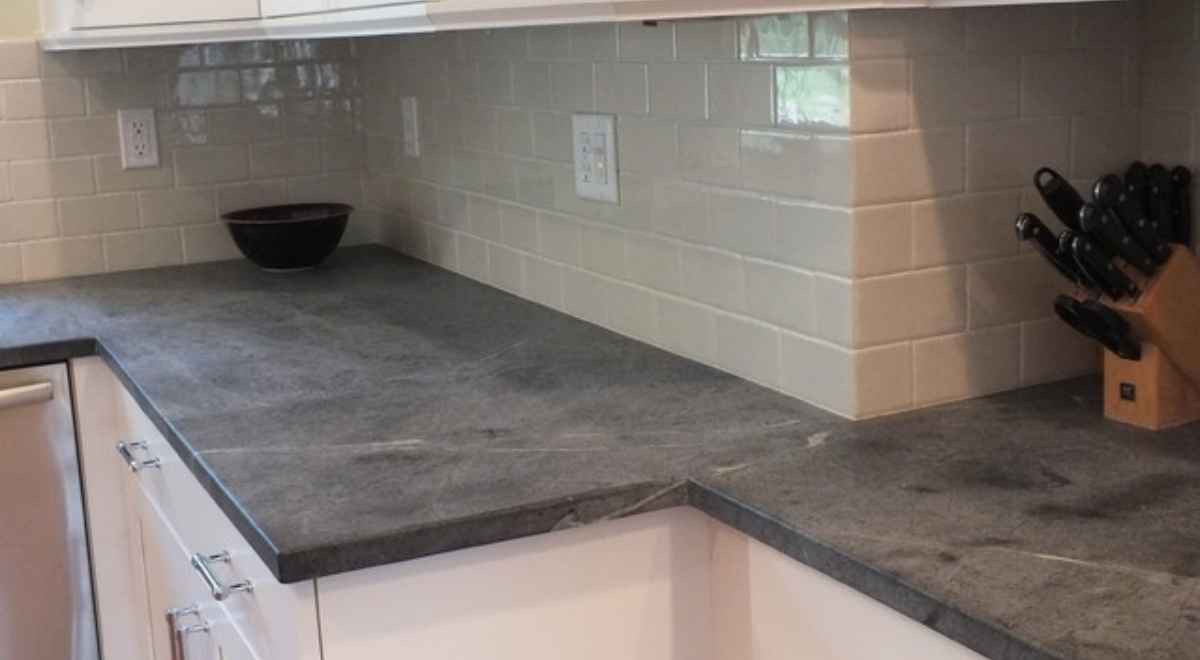
Pros :
- Rich, deep color.
- Smooth feel.
- Somewhat stain resistant.
Cons :
- Requires regular maintenance with applications of mineral oil.
- May crack and darken over time.
9. Marble
Because of its extremely high price tag, marble is not often seen on the countertops of whole kitchens. To get the luxurious look, use it on an island or inset it in a baking center. Marble requires constant maintenance, as it easily stains. Some new sealers retard staining.
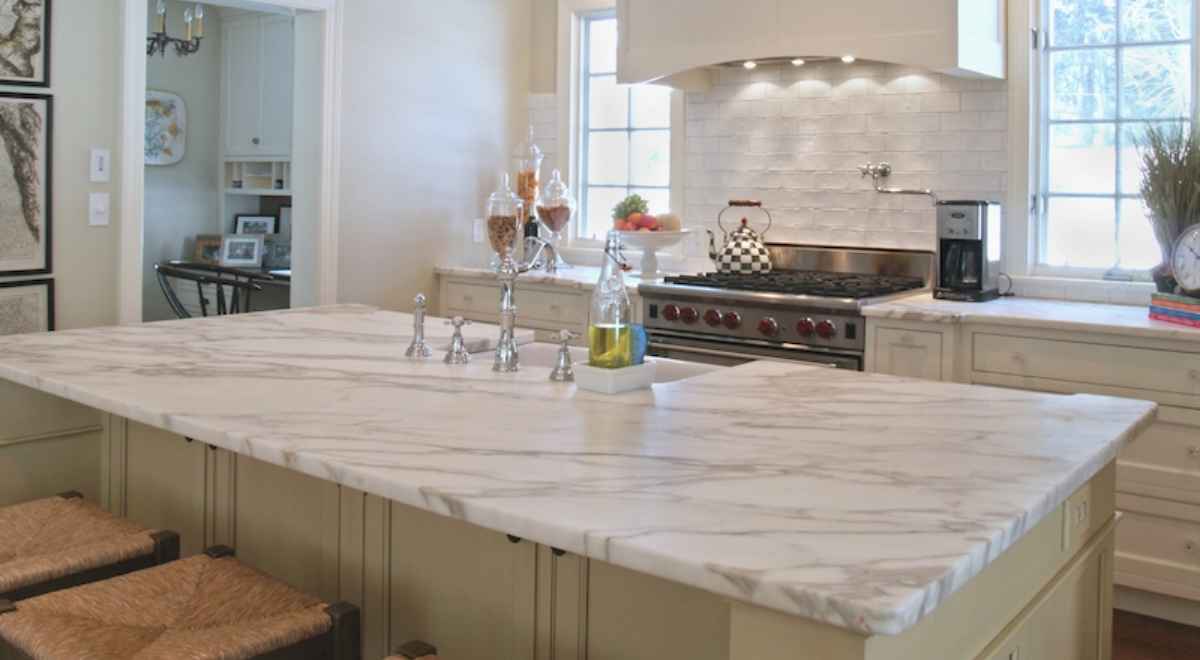
Pros :
- Waterproof.
- Heatproof.
- Beautiful.
Cons :
- Expensive.
- Porous.
- Stains easily unless professionally sealed.
- Can scratch.
- May need resealing periodically as per the manufacturer.
10. Concrete Counters
If you have countertops in unusual shapes, concrete may be a good choice, as they're often cast right in your modular kitchen in India. The high price tag may be beyond most people's budget.
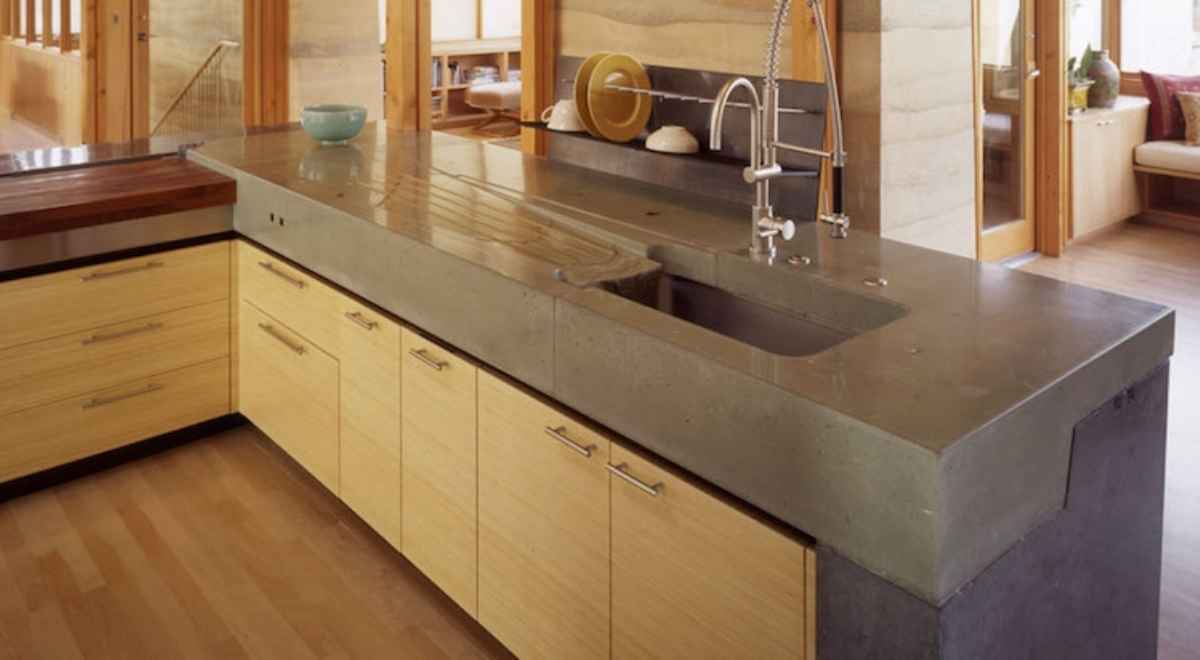
Pros :
- Heat and scratch-resistant.
- Can be color-tinted.
- Looks exotic and unusual.
- New treatments eliminate cracking.
- Additives reduce porosity.
- New finishes are more decorative.
Cons :
- Mid to high range on cost due to custom work.
- Cracking is possible.
- Can look somewhat industrial.
- Porous but can be sealed.
What's the best?
The best countertop material for you depends on your specific needs and requirements. The pros and cons listed above should give you a good idea to pick the countertop material for you.


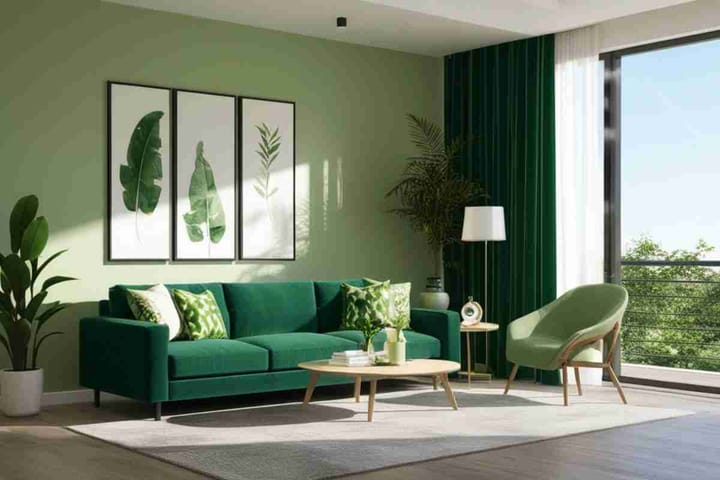

Comments ()